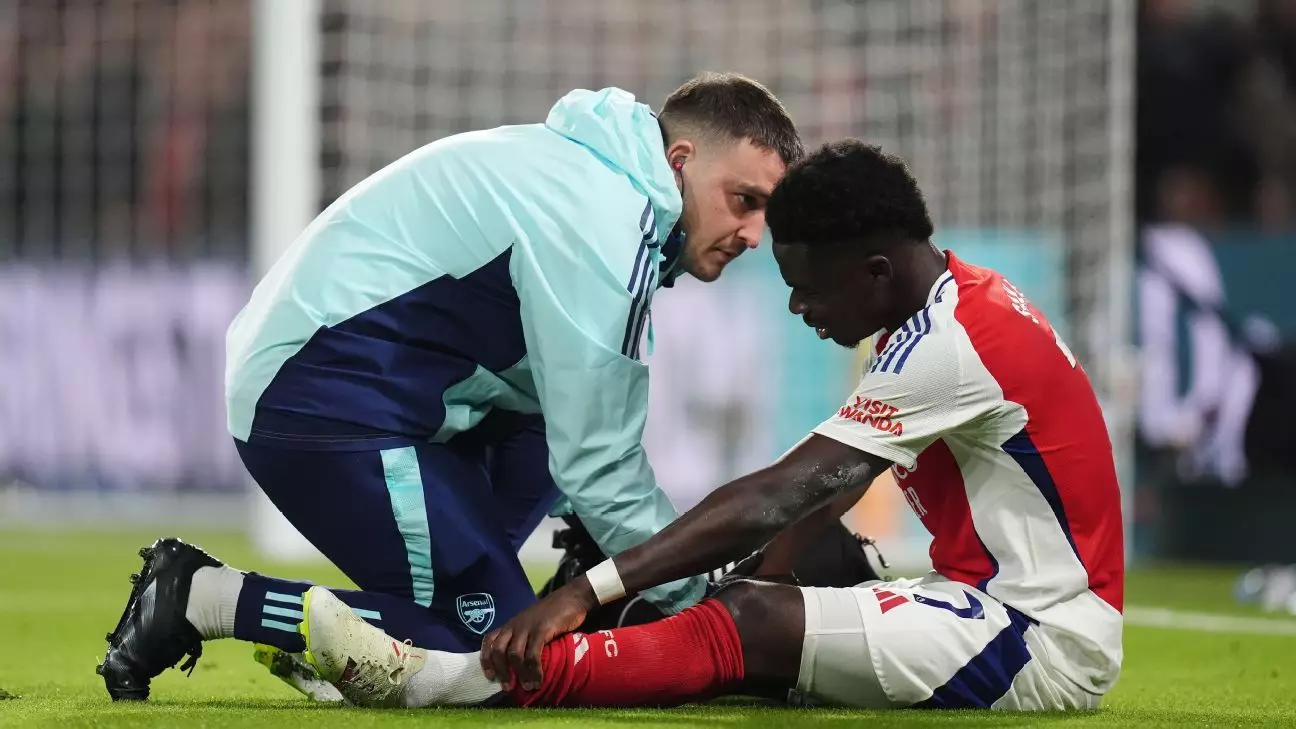The Impact of Injuries on England’s UEFA Nations League Squad
Hey there, fellow football enthusiasts! If you’re anything like me, you’re probably feeling a bit anxious about the upcoming UEFA Nations League fixtures for our beloved England squad. It’s been a whirlwind of emotions lately with the news of several high-profile players having to withdraw due to injuries. Among them, Bukayo Saka and Cole Palmer are just two names on a list that includes Phil Foden, Jack Grealish, and Trent Alexander-Arnold. Their absence certainly leaves us all wondering how this will affect the team’s performance against Greece and the Republic of Ireland.
I can’t help but feel a sense of concern mixed with anticipation. These injuries aren’t just numbers on a roster; they represent unique talents and experiences that have shaped the team’s identity. As fans, we’ve watched these players grow and contribute immensely to England’s recent successes. Now, with interim head coach Lee Carsley at the helm, it’s going to be fascinating to see how he navigates these challenges so close to match day.
The importance of these matches cannot be overstated. They hold the key to maintaining England’s competitive edge in the league. And while change might bring new opportunities, it also risks disrupting the synergy and cohesion that is crucial for any team aiming for success. Let’s dive deeper into how this injury crisis is reshaping England’s squad and what it means moving forward.
Key Takeaways
- Several key players, including Bukayo Saka and Trent Alexander-Arnold, are sidelined due to injuries.
- New talents are being introduced to fill the gaps, offering both opportunities and challenges.
- Injuries highlight ongoing concerns about player fitness in high-stakes matches.
The Injury List: A Blow to Team Dynamics
The withdrawal of high-profile players from England’s squad is more than just a tactical setback; it’s an emotional blow for fans and teammates alike. Each player’s absence creates a void in the team’s strategic plans, leaving Carsley with tough decisions to make. These players contribute not only with their skills but also their leadership on and off the pitch. The synergy built over time can’t be easily replaced, making it imperative for the remaining squad members to step up.

The likes of Phil Foden and Jack Grealish have been pivotal in previous matches, offering creativity and flair that now needs to be sourced elsewhere. Meanwhile, losing Trent Alexander-Arnold is a significant hit given his dual role in defense and attack. His ability to transition play from defense into quick counter-attacks will be sorely missed against teams like Greece and Ireland who often rely on quick breaks themselves.
New Faces: A Mixed Blessing
With injuries come opportunities for new talent to shine on the international stage. Aston Villa’s Morgan Rogers and uncapped talents like Tino Livramento and James Trafford are stepping into the limelight. While their inclusion brings fresh energy and a chance for them to prove their mettle, it isn’t without its drawbacks. Experience plays a crucial role in high-pressure games, and integrating new players can sometimes disrupt existing tactics or create vulnerability.
On one hand, these young talents bring enthusiasm and might surprise opponents unfamiliar with their style of play. On the other hand, there’s always a learning curve when transitioning from club to international football, especially at such a competitive level as the UEFA Nations League. Fans will be watching keenly to see how these new faces handle the pressure and adapt to playing alongside seasoned internationals.
Established Players: The Pressure Mounts
To offset some of these losses, established players like Jarrod Bowen and Jarrad Branthwaite have been brought in as potential stabilizers for the team dynamic. Their performances will undoubtedly be under scrutiny as they are tasked with filling substantial shoes left by absent stars. Bowen’s attacking prowess could provide much-needed goalscoring options, while Branthwaite’s defensive capabilities may offer some reassurance at the back.

The pressure is on for these experienced individuals not only to perform but also to lead by example for younger teammates stepping into unfamiliar territory. It’s a balancing act between introducing new strategies while ensuring that foundational elements of play remain intact. This delicate balance will be crucial if England hopes to emerge victorious from these challenging fixtures.
Fitness Concerns: A Growing Issue
The spate of injuries highlights broader concerns regarding player fitness in today’s high-stakes football environment. Saka’s injury during a late-stage clash against Chelsea underscores how demanding club competitions can impact national duty readiness. Similarly, Alexander-Arnold’s hamstring issue raises questions about workload management for top-tier athletes who juggle intense schedules across multiple competitions throughout the year.

This growing trend is something that both club managers and national team coaches need to address collaboratively if we want our favorite stars performing at their best consistently without risking long-term health problems or burnout situations down line—something no fan wants see happen! So here’s hoping proactive measures taken ensure future occurrences minimized wherever possible!
A Transition Amidst Turmoil
Adding another layer complexity current scenario managerial transition currently underway within English setup; Lee Carsley’s tenure interim manager closing soon making way Thomas Tuchel take reins permanently following conclusion upcoming series games against Greece Republic Ireland respectively—a significant change timing wise given injury crisis already unfolding before him!
This combination factors could potentially influence morale within squad further complicating preparation efforts ahead matches themselves posing unique challenge both coaches players alike during crucial period national team development trajectory overall course tournament aspirations too naturally enough…
Final Thoughts
The impact injuries have had on England’s UEFA Nations League campaign cannot understated—they threaten integrity performance right moment squad needs unity most whether through infusion fresh talent or reliance experienced pros stepping forefront stead fallen comrades! It’ll certainly fascinating watch unfold coming days weeks ahead seeing exactly what kind solutions emerge amidst adversity faced currently ongoing basis across board football world wide alike…

England squad injuries
UEFA Nations League
player fitness concerns
new talent opportunities


Leave a Reply